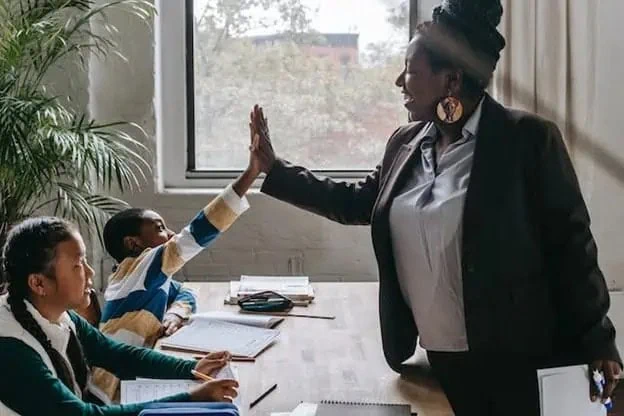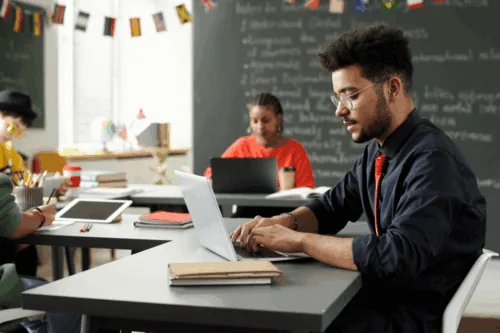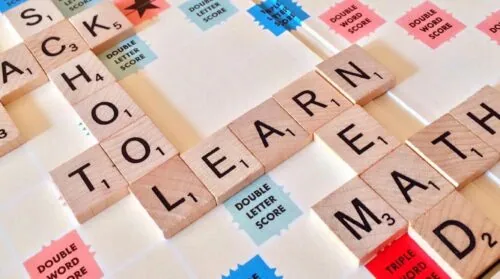An education career is a monumental step that shapes your future. For those drawn to making a real difference, a career in education stands out as a deeply rewarding path. Educators do more than teach; they influence lives, mold futures, and build communities. This guide is crafted for you, the aspiring educator, to explore teachers’ profound impact at every level. From fostering individual growth and confidence to shaping the next generation of leaders, the role of a teacher extends far beyond the classroom walls. With a focus on inclusivity and diversity, this guide aims to illuminate educators’ powerful role in creating a more understanding, thoughtful world.
Whether you’re considering stepping into this impactful profession or seeking to understand the depth of its influence, you’re in the right place. Let’s dive into the remarkable journey of teaching and discover how you can be a part of this transformative career.
The Power of Teaching
Teachers do more than teach. They touch lives. Every day, they show up, ready to make a difference. It’s not just about the lessons from books. It’s about the lessons in life. Teachers guide, inspire, and motivate their students to achieve more than they ever thought possible.
Yet, many don’t realize the demand for qualified educators is growing. Schools across the nation are looking for passionate individuals ready to shape our future generation.
Moreover, teaching brings unique rewards. Here are a few:
- Job Satisfaction: There’s a deep fulfillment in witnessing your students succeed.
- Community Impact: Educators play a vital role in building stronger, more inclusive communities.
- Personal Growth: Teachers often say they learn just as much from their students as their students learn from them.
Also, teaching offers a diverse education career path. Whether you’re leading a classroom, designing a curriculum, or supporting students with special needs, your work makes a real impact. The education sector offers numerous career opportunities worth exploring for those considering a change.
Outside resources also highlight the importance of teaching. According to the National Education Association, educators are at the forefront of societal change, advocating for student well-being and equity in education. Studies by Edutopia show that innovative teaching methods can significantly enhance student engagement and learning outcomes.
The power of teaching extends far beyond the classroom walls. It’s about nurturing future leaders, thinkers, and doers. The journey may be challenging, but the impact is profound.
Building Connections in the Classroom
Every student yearns to feel understood and valued. Teachers bridge this gap by creating meaningful connections. This effort lays the groundwork for a thriving learning environment. By getting to know each student, teachers foster a sense of belonging. This feeling is crucial for students’ academic and personal growth.
Such connections are more than just nice to have; they’re essential. They lead to:
- Enhanced Engagement: Students are more likely to participate when they feel connected.
- Better Outcomes: A supportive classroom boosts students’ academic achievements.
- Increased Motivation: Knowing someone believes in them, students strive harder.
Teachers also play a key role in supporting students facing challenges. This is especially true for minority students, who may encounter unique educational barriers. By addressing these challenges, educators can significantly level the playing field.
Resources like the Teaching Tolerance website offer strategies for building inclusive classrooms. Meanwhile, research by Child Trends emphasizes the importance of teacher-student relationships in promoting student well-being and academic success.
Building connections in the classroom isn’t just beneficial; it’s transformative. It’s about creating a space where students feel they belong and can succeed. Teachers, through their dedication and care, make this possible each day.
Boosting Student Confidence
Confidence is key to success, both in and out of the classroom. Teachers play a crucial role in building this confidence. They do so by celebrating successes, big and small. Also, by providing constructive feedback that fosters growth.
Encouraging Efforts
Every effort counts. Teachers know this well. They praise the effort, not just the outcome. This approach helps students see the value in trying, even when it’s tough. Plus, it teaches resilience.
Setting Realistic Goals
Goals give direction. Teachers help students set achievable goals. Thus, students learn to aim high but realistically. Reaching these goals boosts their confidence further.
Building a Supportive Environment
A supportive environment allows students to take risks without fear of failure. Teachers create such spaces. Mistakes are part of learning, not a reason to give up.
Beyond the classroom, the Harvard Graduate School of Education shares strategies for nurturing student self-esteem. Similarly, Mindset Works promotes practices for developing a growth mindset in students.
Boosting student confidence isn’t just about academics. It’s about setting them up for lifelong success in an education career. Teachers’ actions and words lay the groundwork for this every day.
Growing Positive Mindsets
A positive mindset opens doors to learning and growth. Teachers are at the heart of fostering these mindsets in their classrooms. They encourage students to see challenges as opportunities. Moreover, they teach students to believe in their own ability to improve and learn.
Celebrating Progress
Every step forward is worth celebrating. Teachers emphasize progress, no matter how small. This practice helps students appreciate their own growth over time.
Introducing Problem-Solving Skills
Problem-solving is a critical skill. Teachers introduce ways to tackle difficult situations. As a result, students learn to approach obstacles with confidence.
Encouraging Collaboration
Working together yields better results. Teachers promote teamwork. This way, students learn the value of different perspectives and mutual support.
To dive deeper, resources from Edutopia offer insights into instilling a growth mindset. Furthermore, Character Lab provides tools for developing character strengths, including perseverance and curiosity.
Growing positive mindsets is crucial for lifelong success. Teachers play a key role in this process through their dedication and innovative methods.
The Joy of an Education Career
An education career offers a lifelong learning journey with no end. Teachers spark this journey in their students. They do this by making learning interesting and relevant. They show how learning applies to real life. This approach turns curiosity into a lifelong quest for knowledge.
Inspiring Curiosity
Curiosity leads to discovery. Teachers ask questions that make students think. Soon, students start asking their own questions. This cycle fuels the joy of learning.
Exploring New Ideas
Learning is not just about textbooks. Teachers introduce diverse topics and ideas. This way, students learn to explore beyond the familiar.
Encouraging Exploration
Exploration brings learning to life. Teachers provide opportunities for hands-on activities. These experiences help students connect with what they learn.
For those interested, the Khan Academy offers free resources for teachers and students to foster lifelong learning. Additionally, the Curiosity Stream platform is a great tool for exploring a wide range of subjects through documentaries.
The joy of lifelong learning is a precious gift teachers give their students. It’s about much more than just academics. It’s about inspiring a love for learning that lasts a lifetime.
Supporting Families Through Education
Education takes a village, and teachers are critical in this community. They extend their support beyond the classroom, reaching out to families. This partnership between teachers and families strengthens the support system for students.
Communicating Openly
Open lines of communication are vital. Teachers keep families informed about student progress. They also share ways families can support learning at home.
Providing Resources
Teachers often provide learning resources. These tools help families engage with their children’s education. It’s a team effort for the student’s success.
Understanding Unique Needs
Every family is unique. Great teachers recognize and respect these differences. They adapt their approach to meet these varied needs.
Supporting families through education creates a network of encouragement for students. This network is crucial for their growth and success. By building these bridges, teachers ensure students have the comprehensive support they need to thrive.
Strengthening Our Communities
Educators do much more than teach; they’re key to strengthening our communities. They build a more inclusive, understanding, and supportive society through their dedication. Check out Find Your Education Dream Job Ultimate Guide for insightful tips and advice on an education career.
Encouraging Community Involvement
Teachers inspire students to get involved. They introduce them to community service and the importance of giving back. This fosters a sense of responsibility.
Building Inclusive Spaces
Classrooms reflect society’s diversity. Teachers promote inclusivity and respect. Thus, they prepare students to be open-minded citizens in a global community.
Collaborating with Local Organizations
Many teachers collaborate with local groups. These partnerships bring real-world issues into the classroom. Plus, they show students how to make a positive impact.
For insights on creating inclusive environments, educators can turn to support for minority students. Additionally, Learning for Justice offers resources to teach diversity and equity, enriching the learning experience while strengthening our communities.
Educators’ actions and teachings lay the groundwork for stronger, more inclusive communities. It’s another profound way teaching goes beyond just academics.
Teachers: World Changers
Teachers do more than educate; they change the world. With every lesson, discussion, and project, they shape the future. They inspire the next generation of leaders, innovators, and thinkers. Truly, they hold a key role in preparing youths to face and transform the world.
Molding Future Leaders
By instilling confidence and values, teachers mold students into future leaders. They show the importance of integrity, hard work, and compassion.
Inspiring Innovations
Teachers encourage creative thinking. This sparks innovation. Students learn to think outside the box, leading to new discoveries and solutions.
Teaching Values
Values are the foundation of society. Teachers pass on crucial values like respect, empathy, and teamwork. These values shape students’ characters.
The impact of teachers extends far and wide. Every day, they build a better future. They truly are world changers through their dedication, passion, and care.
FAQs
How Can I target my resume towards an education career?
Check out our Targeted Education Resume Template to get an insight on creating a targeted resume.
How Can I Become a Teacher?
To become a teacher, you typically need a bachelor’s degree in education. Also, most states require teaching certification. Volunteering at schools can give you a good start.
Can Teachers Impact Community Involvement?
Yes, teachers play a critical role in community involvement. They encourage students to participate in local events and service projects, fostering a sense of civic duty.
Why Is Diversity Important in an Education Career?
Diversity introduces varied perspectives and experiences, enriching the learning environment. It prepares students for a global workforce and promotes inclusivity and understanding.
How Can Teachers Support Students with Special Needs?
Teachers can support these students by adapting lessons to fit diverse learning styles. Collaborating with parents and specialists is also key for tailored support plans.
What Is Lifelong Learning?
Lifelong learning is the ongoing, voluntary pursuit of knowledge for personal or professional reasons. It enhances social inclusion, active citizenship, and personal development.
How Do Teachers Foster a Positive Mindset?
Teachers foster positive mindsets by encouraging effort over perfection, teaching resilience, and celebrating individual progress and successes.
Can Teaching Shape the Future?
Absolutely. Teachers inspire and educate the next generation, laying the groundwork for societal advancement and innovation.
Conclusion
Teachers have an unparalleled impact on shaping our future. From fostering a love of learning and building confidence to supporting families and strengthening communities, their role is truly foundational. The journey of teaching is filled with challenges, yet it’s one of the most rewarding paths one can choose, offering the chance to inspire and change lives daily.
If you’re passionate about your diversity job search or making a difference and are ready to embark on this noble profession, we invite you to join Diversity Employment. Here, you’ll find resources, support, and opportunities to thrive in an education career that values diversity and inclusivity. Together, we can create a brighter future for all students, regardless of their background. Join us in empowering the next generation of leaders, innovators, and thinkers. The world needs more educators, and the journey begins with you. Let’s make a difference, one student at a time.




